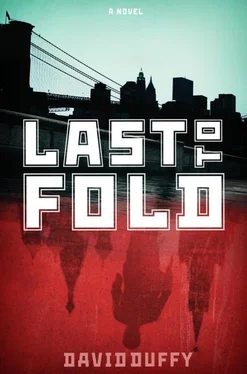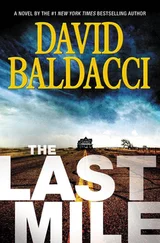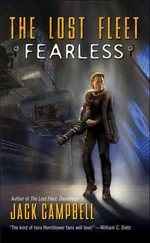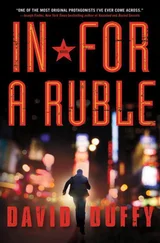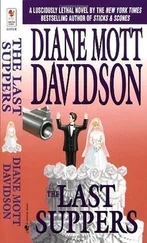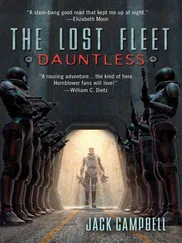Her surprise this morning had seemed genuine. She still despised me, she’d made that clear, but her anger also covered fear, fear that she’d been recognized, fear that someone now knew who she’d become. I was a threat, but the far bigger threat was Lachko, who was almost certainly unaware that his ex-wife and daughter were living in the same city he was. That explained her marriage to Mulholland (I’d already eliminated love as a reason, however unfairly) and her low profile since. Polina had always sought protection. As a child, she’d witnessed her father, a general in the GRU, cashiered out of the army, tried for treason, and sent to the Gulag. Her family and her life had disintegrated around her, and she carried a constant terror that it would happen again. It did, with me, one root of her hatred. She sought refuge in Lachko. Kosokov, too. But Kosokov ended up dead in 1999, according to Ivanov. For whatever reason, she hadn’t gone back to Lachko, she’d run, come here. She’d brought Eva with her and become Felicity Kendall. But what about Aleksei? Had she left him behind in Russia? Or…
I didn’t want to think about or .
Polina was resourceful. She’d had enough money and know-how to acquire a new identity. She knew her way around New York. She’d lived here twice before, with me. Even so, alone, in a foreign city, with Eva to worry about, she wouldn’t have felt safe. Especially if she thought Lachko was looking for her. So she’d married Mulholland and his money and settled down. Then—bang! bang! bang!—her cover’s blown, her husband’s jailed, and his fortune’s shrinking faster than an ice cube on the sidewalk outside. Unless I badly missed my guess, she’d be petrified. If this was a setup, it seemed doubtful she was part of it, unless someone was setting both of us up, together. That someone could be Lachko, but I still had the same questions—why and why now and what for?
Lachko hated me, of course. He’d played his part in the Disintegration. He’d destroyed my marriage and my career, and he’d walked off with the prize he coveted in Polina. If he’d wanted me dead, it wouldn’t have been difficult to arrange. At the time, back in Moscow, I’d waited for the late-night knock at the door presaging the trip to the cells of Lubyanka, but it never came. I’d often wondered if Lachko had tried but his father had vetoed the plan. As time passed, I more or less ceased worrying, although the alarm bells jangled in my head when I learned Lachko had moved to New York. He hadn’t looked me up, and I stayed away from Brighton Beach, where he lived. He might not even know I lived in the same city—he had bigger fish to fry these days.
Lachko ran Russian organized crime in New York. In the post-Soviet chaos, he and his twin brother, Vasily, used their positions to build a highly successful criminal organization in Moscow whose core businesses were protection and extortion, but which had expanded into all manner of related rackets—drugs, smuggling, money laundering, prostitution, contract killing, and more recently cyber-crime. A few years before, they’d gone international, and Lachko moved here to oversee the U.S. interests of the Badger brothers—Barsukov translates to Badger. I followed their progress from a safe distance via Ibansk.com. After the Cheka, the Badgers are Ivanov’s favorite subject, probably because it’s impossible to separate the two. As I’d told Mulholland, the line between criminals and those charged with catching them was never clear in Soviet times. In the New Russia, it disappeared entirely.
Try as I might, I couldn’t see why Lachko would bother with me, or even with Polina, for that matter, after all this time. The flaw in that logic was, I was assuming he had matured into a rational human being since I saw him last, when there was no reason to believe he wasn’t the same brutal, vindictive, destructive bastard I knew him to be—from painful firsthand experience.
The card player in me said I couldn’t yet see enough of the cards on the rest of the table to fold my hand. The Chekist in me said, if this was Lachko at work, I could walk away but he’d follow. Better to play on, eyes open. Besides, having put socialism solidly in my past, there was still that six sixty-six, plus expenses.
I should have been mindful of another Russian proverb. The only free cheese is in the mousetrap.
Hayes & Franklin rents twelve floors of One New York Plaza, a big, ugly, waffle-walled tower at the southeast tip of Manhattan, five minutes’ walk from my office. Almost six o’clock, but the thermometer was still into the nineties, the air as solid as concrete. I could feel the heat of the sidewalk through my shoes.
The building’s modern, but Hayes & Franklin’s offices are decorated right out of the Thomas Chippendale catalog, if Thomas Chippendale had a catalog, which maybe he did. Lots of reproduction mahogany furniture, nautical pictures, and prints of birds and botanicals. Bernie occupied a corner office overlooking the South Ferry Terminal. Documents were stacked on every available surface, including the floor. I took two piles off the chair across from his desk and sat down. He didn’t look up, just muttered, “Fuck it,” to something he was reading, pencil in hand. He put a blunt black line across the page.
Despite his harried appearance, Bernie’s a cool customer. Almost never raises his voice. I’d been surprised by his swearing this morning, and it didn’t appear his temperament had improved. Mulholland and FTB had him under a lot of strain. Maybe other clients, too. Or he’d spent too much of the day with Polina. I didn’t want to make a bad day worse, but there was no way around it.
“How’s Mulholland?” I asked.
He raised one eye. “They’re keeping him overnight. Arraignment and bail in the morning. Totally fucking unnecessary. He could’ve been out this afternoon. Except that the goddamned U.S. attorney feels she has to make a show of how tough she can be on white-collar defendants because she spent most of her career defending them. It’s all bullshit, starting with the charges. Bullshit politics, bullshit playing to the media, more bullshit. Meanwhile Rory’s still in the Tombs—for no good goddamned reason. She’s busting my balls over bail, too. To think I got that woman made partner. No good deed goes unpunished.”
His voice had risen through most of his rant, almost to a yell, then softened again at the end until he sounded remorseful. He was having a worse day than I thought. I hesitated to ask a question, for fear of setting him off again, but I wasn’t clear I was following.
“What woman?” I said.
He looked at me like I’d just stepped off the boat from some country permanently mired in the Middle Ages. “This is a federal case, you Cossack. That means it’s run by the Justice Department and the Justice Department’s designated representative in this judicial district, so we’re talking about the U.S. fucking attorney for the Southern District of New York!”
“And she was your partner?”
“Before she ascended to her current lofty heights of public service, yes, she toiled here in the fields of Hayes & Franklin, where, thanks in part to me, she became a very well paid partner. Bitch.”
“Sorry I asked. Let’s drop it.”
He pushed his chair back from the desk, put down the pencil, and rubbed his eyes behind his glasses.
“Sorry, Turbo. Been a long day, so far. I need to vent, I guess—but I do feel like I’ve got a knife in my back. Victoria was a partner here before she got her current appointment. She came to us in a merger, a firm in Atlanta. She put in to move to New York. I took her under my wing since I came in as an outsider, too. She’s a white-collar crime specialist, like I said. She worked her ass off, developed quite a reputation. When she came up for partner, I shoved it through. No question she deserved it, but it was still a fight with the old stiffs who think they run this place. Woman, Dixie accent, criminal law—not the Hayes & Franklin mold. She got the U.S. attorney post six months ago. Big-time appointment. Now the bitch wants two mil bail. No good deed…”
Читать дальше
